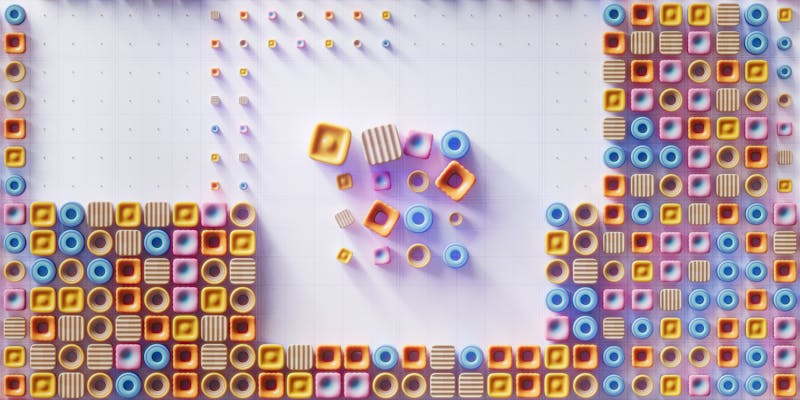Unlocking Energy Efficiency: Your Ultimate Guide
Welcome to our ultimate guide on unlocking energy efficiency! In this comprehensive blog post, we will delve into the core concepts of energy efficiency and provide you with the essential knowledge to make your home more energy-efficient. From understanding the basics of what energy efficiency is to exploring innovative technologies shaping the future of sustainability, we've got you covered.
Discover top strategies to optimize energy efficiency in your home, learn how energy efficiency can lead to significant cost savings in the long run, and debunk common misconceptions that may be holding you back. Join us on this enlightening journey as we explore the intricate relationship between energy efficiency and a more sustainable, eco-friendly lifestyle. Stay tuned as we uncover the latest trends and innovations revolutionizing the field of energy efficiency technology

Understanding the Basics: What is Energy Efficiency?
Understanding the Basics: What is Energy Efficiency?
Energy efficiency is a key concept in today's world, as we strive to reduce energy consumption and minimize our impact on the environment. Essentially, energy efficiency involves using less energy to achieve the same level of productivity or output. It is all about getting the most out of the energy we use while wasting as little as possible.
At its core, energy efficiency is about optimizing energy consumption in various aspects of our lives, whether it be in our homes, businesses, or daily activities. This can involve using energy-efficient appliances, improving insulation in buildings, or adopting sustainable practices that reduce energy waste.
One of the primary benefits of energy efficiency is its positive impact on the environment. By reducing the amount of energy we use, we can decrease greenhouse gas emissions and mitigate climate change. Energy efficiency also helps conserve natural resources and reduces our dependence on finite energy sources like fossil fuels.
In addition to its environmental benefits, energy efficiency can also lead to cost savings for individuals and businesses. By using energy more efficiently, we can lower our utility bills, increase the lifespan of our appliances, and improve the overall efficiency of our operations.
Overall, understanding the basics of energy efficiency is crucial for anyone looking to make a positive impact on the environment and save money in the long run. By implementing energy-efficient practices and technologies, we can all contribute to a more sustainable future for generations to come
Top Strategies to Improve Energy Efficiency in Your Home
Top Strategies to Improve Energy Efficiency in Your Home
Improving energy efficiency in your home is not only beneficial for the environment but also for your wallet. By implementing smart strategies, you can reduce energy waste, lower utility bills, and create a more sustainable living space. Here are some top strategies to help you unlock energy efficiency in your home:
1. **Upgrade to Energy-Efficient Appliances**: Consider replacing old, energy-guzzling appliances with newer models that are ENERGY STAR certified. These appliances are designed to consume less energy while still providing top performance.
2. **Seal Air Leaks**: Inspect your home for air leaks around windows, doors, and ductwork. Sealing these leaks with caulking or weatherstripping can prevent drafts and reduce the workload on your heating and cooling systems.
3. **Install a Programmable Thermostat**: A programmable thermostat allows you to regulate your home's temperature based on your schedule, ensuring that you're not heating or cooling an empty house. This can lead to significant energy savings over time.
4. **Improve Insulation**: Proper insulation in your walls, attic, and floors helps maintain a consistent indoor temperature, reducing the need for excessive heating or cooling. Consider adding insulation or upgrading to more energy-efficient options.
5. **Switch to LED Lighting**: LED bulbs use up to 80% less energy than traditional incandescent bulbs and last much longer. Make the switch to LED lighting throughout your home to save on energy costs and reduce waste.
6. **Unplug Electronics When Not in Use**: Many electronics consume energy even when they're turned off but still plugged in. To prevent this "phantom" energy usage, unplug devices or use power strips to easily disconnect multiple devices at once.
7. **Opt for Renewable Energy Sources**: Consider investing in solar panels or wind turbines to generate your own clean energy. While the initial cost may be high, the long-term savings and environmental benefits make it a worthwhile investment.
By implementing these strategies and making energy-efficient choices in your daily life, you can create a more sustainable and cost-effective home environment. Start small by focusing on one area at a time, and over time, you'll see significant improvements in both your energy bills and your environmental footprint
The Relationship Between Energy Efficiency and Cost Savings
The Relationship Between Energy Efficiency and Cost Savings
Energy efficiency is a crucial aspect of managing energy consumption in a way that optimizes performance and reduces waste. This practice involves implementing technologies, processes, and behaviors that allow individuals, businesses, and organizations to use less energy to achieve the same output. The direct connection between energy efficiency and cost savings lies in the simple concept of using less energy to power the same appliances, equipment, and systems. By enhancing energy efficiency, you can lower your utility bills, decrease operational costs, and ultimately save money in the long run.
When appliances and systems are operating at their peak efficiency levels, they require less energy to function, leading to reduced energy consumption. This translates to immediate cost savings on electricity, gas, or water bills, depending on the type of energy being conserved. For businesses, investing in energy-efficient technologies and practices can result in significant financial benefits by lowering overhead costs and increasing profitability.
Moreover, energy efficiency can contribute to environmental sustainability by reducing greenhouse gas emissions and minimizing the depletion of natural resources. By optimizing energy use, businesses and individuals can play a part in mitigating climate change and preserving the planet for future generations.
In essence, the relationship between energy efficiency and cost savings is clear: by prioritizing energy efficiency in your daily operations and lifestyle choices, you can not only reduce your environmental impact but also enjoy tangible financial benefits. Embracing energy-efficient practices is a win-win solution that promotes sustainability, lowers expenses, and fosters a more efficient use of resources

Overcoming Common Misconceptions About Energy Efficiency
Overcoming Common Misconceptions About Energy Efficiency
When it comes to energy efficiency, there are several common misconceptions that can hinder individuals and businesses from fully embracing this important concept. Let's debunk some of these myths to help you unlock the true potential of energy efficiency:
1. **Energy efficiency is only for new buildings**: One common misconception is that energy efficiency measures are only relevant for new constructions. In reality, older buildings can benefit significantly from energy-saving upgrades. Retrofitting existing structures with energy-efficient lighting, HVAC systems, and insulation can lead to substantial cost savings and reduced environmental impact.
2. **Energy-efficient appliances are too expensive**: While it's true that energy-efficient appliances may have a higher upfront cost, they are designed to consume less energy over their lifespan, resulting in long-term savings on utility bills. In fact, many government incentives and rebates are available to encourage the purchase of energy-efficient products, making them more accessible and affordable.
3. **Energy efficiency is a minor issue**: Some people believe that energy efficiency is a minor concern compared to other environmental issues. However, improving energy efficiency is one of the most effective ways to reduce greenhouse gas emissions and combat climate change. Small changes in energy consumption, such as turning off lights and unplugging devices when not in use, can add up to significant energy savings when practiced on a larger scale.
4. **Energy efficiency is only about saving money**: While saving money on energy bills is a significant benefit of energy efficiency, its impact extends far beyond financial savings. Conserving energy helps reduce greenhouse gas emissions, decrease reliance on fossil fuels, and protect the environment for future generations. Embracing energy efficiency is not just a financial decision but also a responsible choice for a sustainable future.
By dispelling these common misconceptions and understanding the true value of energy efficiency, individuals and businesses can take meaningful steps towards reducing their energy consumption, cutting costs, and contributing to a more sustainable planet
Innovations in Energy Efficiency Technology
Innovations in Energy Efficiency Technology
Energy efficiency technology has come a long way in recent years, offering innovative solutions to help individuals and businesses reduce their energy consumption and carbon footprint. These advancements have paved the way for a more sustainable future by promoting smarter energy usage and conservation practices.
One major innovation in energy efficiency technology is the development of smart thermostats. These devices are equipped with sensors that can detect when a space is occupied and adjust the temperature accordingly, helping to reduce energy waste from unnecessary heating or cooling. Smart thermostats can also be controlled remotely via a smartphone app, allowing users to optimize their energy usage even when they are away from home.
Another key innovation is the rise of energy-efficient appliances and lighting solutions. From refrigerators to light bulbs, manufacturers have been incorporating energy-saving features into their products to help consumers reduce their electricity consumption. These appliances are designed to operate more efficiently, using less energy without compromising on performance.
Furthermore, advancements in building materials and construction techniques have led to the development of energy-efficient buildings. Features such as improved insulation, energy-efficient windows, and solar panels are being integrated into new construction projects to maximize energy savings and reduce environmental impact. Additionally, energy management systems are being implemented to monitor and control energy usage within buildings, ensuring that resources are utilized efficiently.
In conclusion, the ongoing innovations in energy efficiency technology are reshaping the way we interact with energy in our daily lives. By embracing these advancements, we can unlock new opportunities to conserve resources, lower our energy bills, and create a more sustainable future for generations to come
Conclusion
In conclusion, this ultimate guide on unlocking energy efficiency has provided valuable insights into the core concepts of energy efficiency. From understanding what energy efficiency entails to exploring top strategies for optimizing it in your home, we have covered essential knowledge to help you create a more sustainable, eco-friendly lifestyle.
Throughout this blog post, we highlighted how investing in energy efficiency not only benefits the environment but also leads to significant cost savings in the long run. We dispelled common misconceptions and showcased innovative technologies that are shaping the future of sustainability.
By embracing energy efficiency practices, you can reduce your carbon footprint, lower your utility bills, and contribute to a greener planet. Remember, small changes can make a big impact. Stay informed about the latest trends and innovations in energy efficiency technology to stay ahead in creating a more energy-efficient home and a brighter future for generations to come.